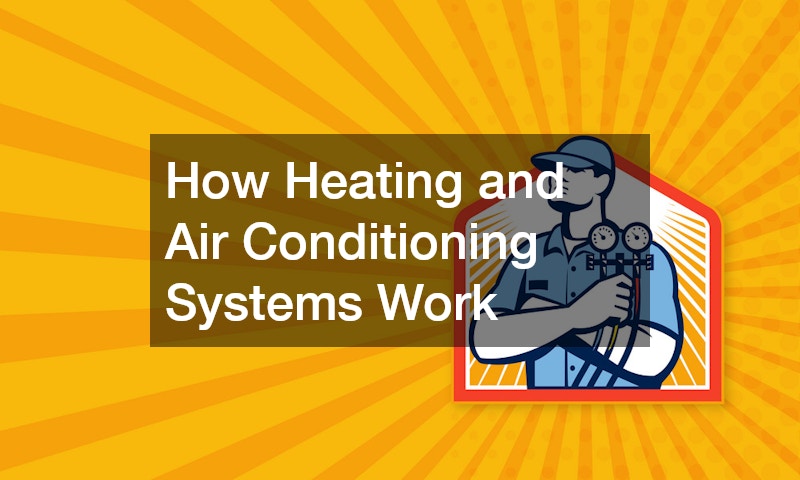Heating and air conditioning systems are essential for maintaining comfortable indoor environments year-round. These systems regulate temperature, humidity, and air quality, ensuring that homes and businesses remain pleasant regardless of external weather conditions.
At the core of HVAC systems are the fundamental principles of thermodynamics. In heating mode, a furnace or heat pump generates warm air by burning fuel or extracting heat from the outside air.
This warm air is then distributed throughout the building via a network of ducts. Conversely, in cooling mode, the system uses a refrigerant to absorb heat from the indoor air and release it outside, effectively lowering the indoor temperature.
Modern heating and air conditioning systems incorporate advanced technologies to enhance efficiency and performance. Thermostats, for example, allow users to set desired temperatures, enabling the system to adjust operation automatically. Additionally, energy-efficient components such as variable-speed compressors and smart controls help reduce energy consumption, lowering utility bills and minimizing environmental impact.
Regular maintenance is crucial for the optimal functioning of HVAC systems. Routine tasks like cleaning filters, inspecting ducts, and servicing mechanical parts ensure that the system operates smoothly and efficiently. By understanding how heating and air conditioning systems work and maintaining them properly, homeowners can enjoy consistent comfort and extend the lifespan of their HVAC equipment.
.



